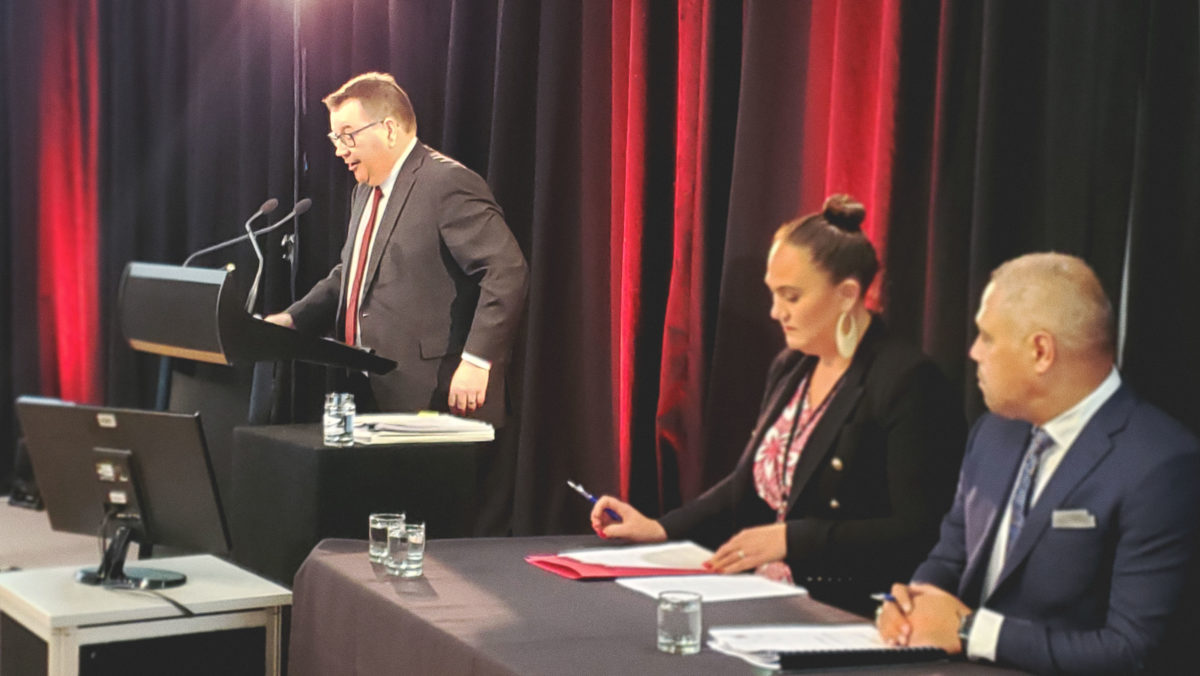It was part of the Labour Government’s Wellbeing Budget, which would spend an additional $4.7 billion on health.
The Budget included $98m to set up its proposed Māori Health Authority (MHA), and $127m for Hauora Māori programmes – run by the MHA – including money for boosting “provider capability, and a Māori health innovation fund”.
Finance Minister Grant Robertson was at pains to point out the money was only the beginning of funding for the MHA.
“Just to be clear … that is just the initial set-up and transition costs. It is not the costs, or the amount of money we’re going to invest in Māori health over the next few years. This is to establish a Māori Health Authority, begin its commissioning work – but there will be more resources as we develop…”
Included in the Budget was an extra $200m over four years for Pharmac, plus an additional $2.7b for District Health Boards (DHBs) over the next four years.
There would also be $700m infrastructure cash for DHBs to invest in new assets over four years.
Health Minister Andrew Little said the Budget increased funding for primary health care by $46.7m annually.
He said the funding would double the number of adults receiving cochlear implants, an increase that means 320 more people would get implants by 2025.
The $486m set aside for the health reforms would run over four years, to replace the 20 DHBs with a single agency, Health NZ, create local networks and establish the MHA.
The changes will be rolled out over the next three years, with legislation underpinning them expected to be in place by this time next year.
Meanwhile the Government allocated $1.5b for the COVID-19 vaccine and immunisation programme.
Robertson said about $1b of that was for advance-purchase agreements for vaccines, and $357m for the immunisation programme.
“We are also continuing to invest in our managed isolation, quarantine and other border facilities. We still have $5.1b available in the COVID Response and Recovery Fund.”
Asked why Whānau Ora had not received additional funding in the new Budget, Associate Health Minister (Māori Health) Peeni Henare said housing and health were the main issues being flagged by Māori communities – therefore funding was prioritised in those areas.
NZNO Senior Policy Analyst Lucia Bercinskas said there was no indication if any of the new funding was targeted at health worker salaries.
Bercinskas said a proposed social unemployment insurance scheme, paying out people left unemployed by the likes of COVID-19, was simply reactive.
“Again that is almost like the ambulance at the bottom of the cliff – but there was no incentive for people to keep their jobs in the health sector.” She asked who would pay for it.
While there was additional money for Pharmac, it was not as much as had been requested, Bercinskas said. This meant there would still need to be rationing, to get first world drugs and devices.
Similar questions remained about the extra cash for DHBs, she said: would it be used for actual investment, or just to pay off national debt?
However, Bercinskas said the Budget did take a more holistic approach to working on the social determinants of health, like child poverty, housing, and Māori housing.
The Budget would raise weekly benefits by between $32 and $55 per adult. Student living support would increase by $25 a week from April 1 next year.
Other health spending
- $516m to develop and run effective health infrastructure including a national health information platform, so health records can be read and approved by health professionals anywhere in the country.
- $399m to support people with longterm physical, intellectual or sensory impairment.
- $100m to improve air and road ambulance services.
- $16m for Pacific health providers to implement the Ola Manuia Action Plan.





